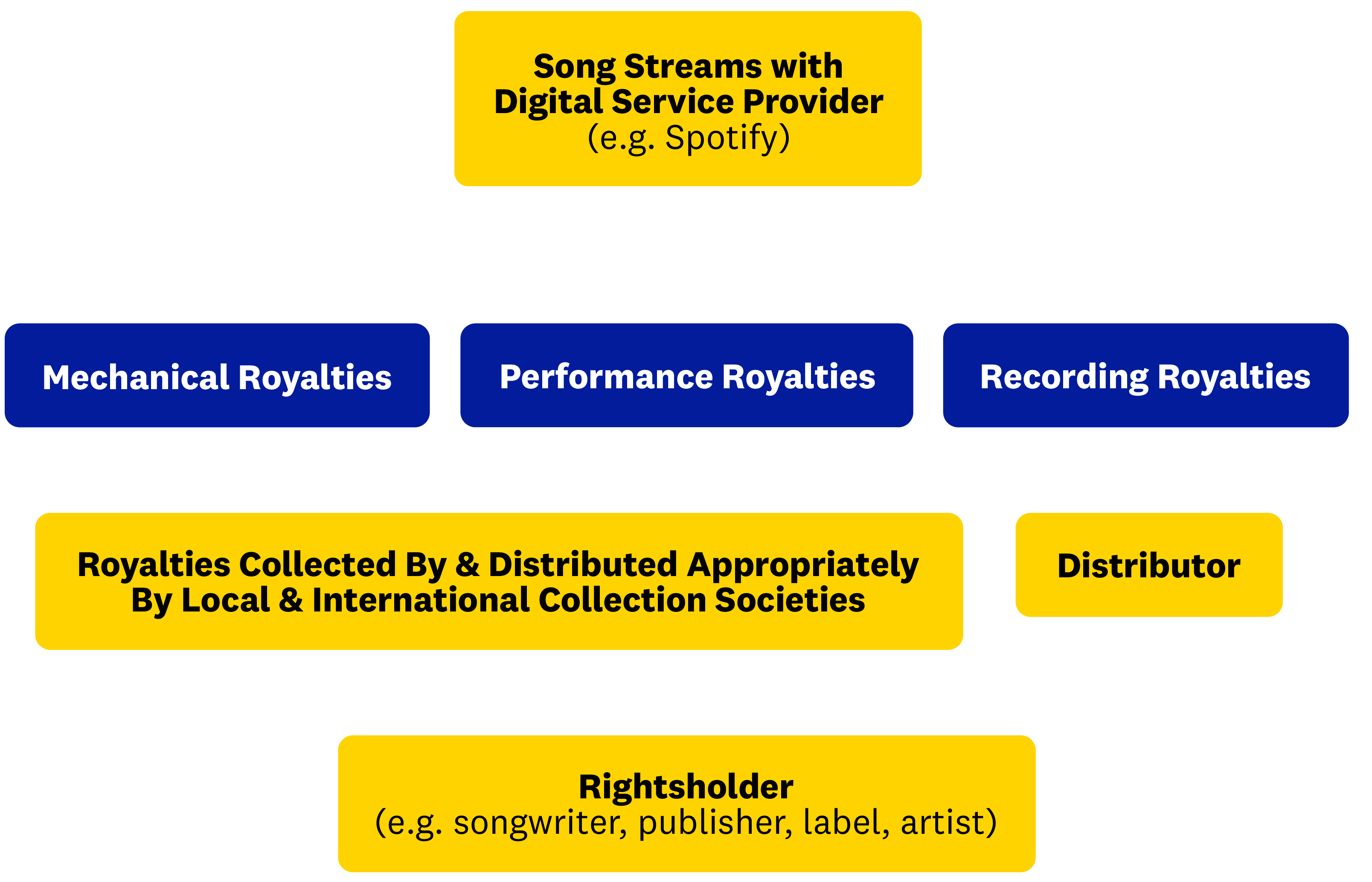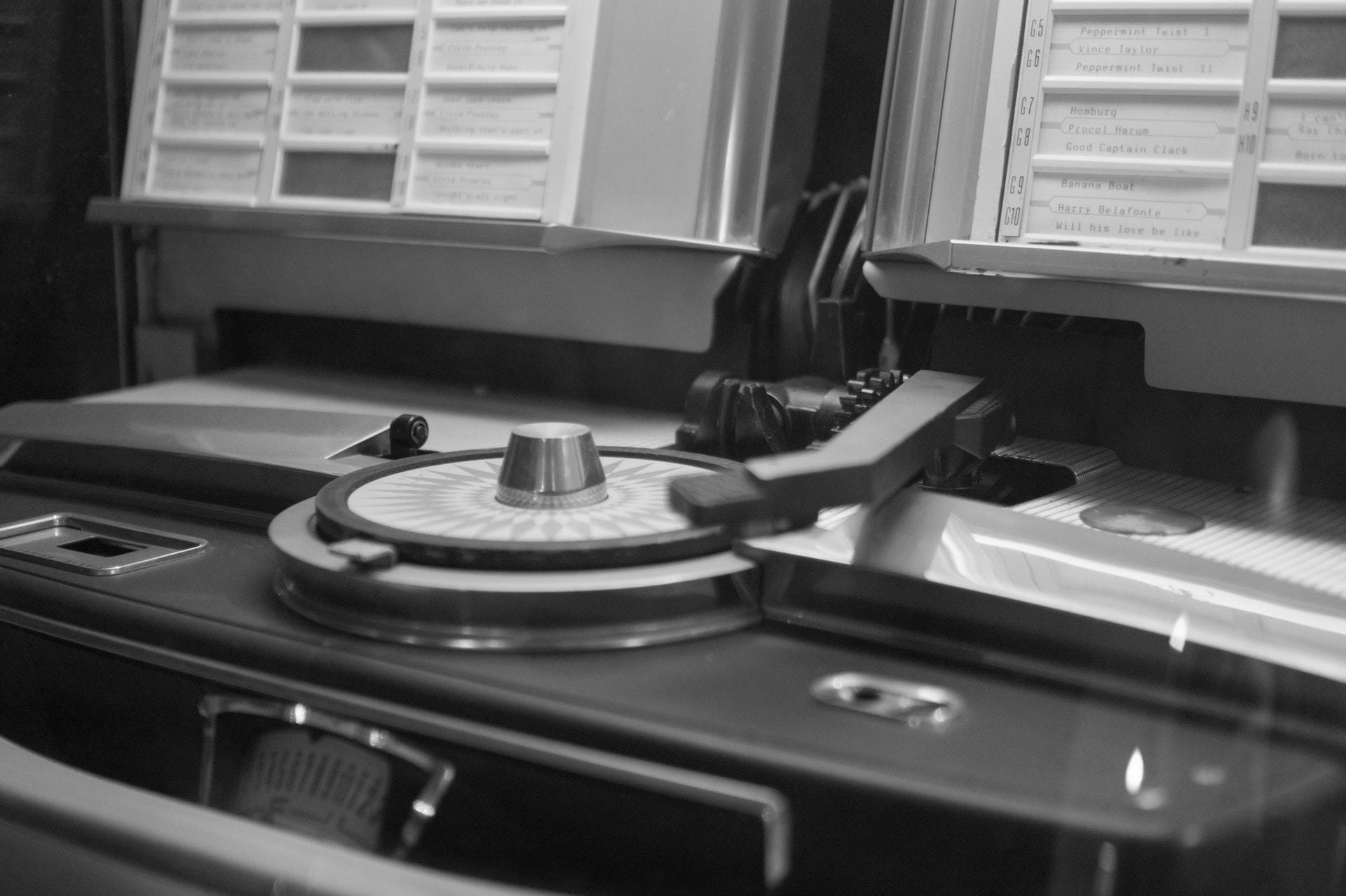Does DistroKid collect mechanical royalties? This question has been buzzing around the music industry, especially among independent artists who rely on digital distribution platforms to get their music out there. If you're an indie musician or producer, understanding how royalties work and whether DistroKid plays a role in collecting them is crucial for your financial success. Let's dive into the nitty-gritty details and clear up any confusion once and for all.
Imagine this: you’ve just released your latest track, and it’s blowing up on Spotify and Apple Music. People are streaming it left, right, and center. But wait—do you know exactly how much money you're earning from those streams? And more importantly, are you getting paid for every single use of your music? That’s where mechanical royalties come into play. They’re like the hidden treasure chest of revenue that many artists overlook.
Now, here’s the deal: DistroKid is one of the most popular music distribution platforms out there. It helps artists upload their songs to major streaming services without breaking the bank. But when it comes to collecting mechanical royalties, things can get a little tricky. So, stick around as we break it all down for you in a way that’s easy to understand, even if you’re not a music biz expert.
- Good Luck For The Test Your Ultimate Guide To Ace It With Confidence
- Famous People Kenya Celebrating The Stars Who Put East Africa On The Map
What Are Mechanical Royalties Anyway?
Mechanical royalties are payments made to songwriters and publishers whenever their compositions are reproduced or distributed. Think of it like this—if someone downloads your song, streams it on a platform, or even uses it in a cover version, you’re entitled to a cut of that action. These royalties are typically calculated based on the number of streams, downloads, or physical copies sold.
Here's the kicker: mechanical royalties are different from performance royalties. While performance royalties are earned when your music is played publicly (like on the radio or in a live show), mechanical royalties focus on the actual reproduction of your music. And guess what? Platforms like Spotify and Apple Music generate both types of royalties, so it's essential to ensure you're collecting both.
Why Are Mechanical Royalties Important for Artists?
For indie artists, mechanical royalties can be a significant source of income. They represent the compensation you receive for the use of your original compositions. Without properly tracking and collecting these royalties, you could be leaving money on the table. And let’s face it, every dollar counts, especially when you're trying to make a living from your music.
- Mansion On Hutchinson Island The Ultimate Getaway Destination
- Vampire Pun Biting Into The World Of Witty Darkness
- Mechanical royalties can account for up to 10% of an artist's total earnings.
- They provide a steady stream of income, even if your music isn't getting massive airplay.
- By collecting mechanical royalties, you ensure that your intellectual property is being respected and compensated fairly.
Does DistroKid Collect Mechanical Royalties?
Alright, let’s cut to the chase. Does DistroKid collect mechanical royalties? The short answer is no. DistroKid focuses solely on distributing your music to various streaming platforms and collecting revenue generated from those streams. However, it does not handle the collection of mechanical royalties. Instead, it leaves that responsibility to the artist or a third-party service.
Now, before you start panicking, hear us out. DistroKid's primary role is to simplify the distribution process for independent artists. It takes care of uploading your music, ensuring it reaches platforms like Spotify, Apple Music, and TikTok. But when it comes to royalties, especially mechanical ones, you’ll need to look elsewhere for support.
How DistroKid Handles Royalties
DistroKid acts as a middleman between you and the streaming platforms. When someone streams or downloads your music, the platform pays DistroKid, and DistroKid then forwards the money to you. It’s a pretty straightforward process, minus the mechanical royalties part. Here’s how it works:
- DistroKid collects 100% of the revenue generated from streams and downloads.
- There’s no charge for using their service; instead, they take a small annual fee or a one-time fee per album/single.
- They pay artists via PayPal or bank transfer, usually within a few days of receiving payment from the streaming platforms.
Who Collects Mechanical Royalties?
So, if DistroKid doesn’t collect mechanical royalties, who does? Enter the world of performance rights organizations (PROs) and mechanical licensing agencies. These organizations specialize in tracking and collecting royalties on behalf of songwriters and publishers. Some of the most well-known ones include:
- Harry Fox Agency (HFA): One of the largest mechanical licensing agencies in the U.S., responsible for issuing licenses and collecting royalties.
- Music Reports Inc. (MRI): Another major player in the mechanical royalty game, providing licensing and royalty management services.
- ASCAP, BMI, and SESAC: While primarily focused on performance royalties, these PROs also offer mechanical royalty collection services.
By partnering with one of these organizations, you can ensure that your mechanical royalties are being properly tracked and collected. It’s like having a team of royalty hunters working tirelessly on your behalf.
DIY vs. Third-Party Services
Now, you might be wondering, “Can I handle mechanical royalties myself?” The answer is yes, but it’s not always the most efficient route. DIY royalty collection requires a lot of time, effort, and knowledge of the music industry’s inner workings. On the other hand, third-party services like Songtrust or CD Baby Pro offer streamlined solutions for collecting both mechanical and performance royalties.
Here’s a quick comparison:
- DIY: Requires constant monitoring of streaming platforms, manual submission of metadata, and negotiation with licensing agencies.
- Third-Party Services: Automates the process, ensuring you don’t miss out on any potential earnings. Plus, they often provide detailed reports and analytics to help you track your royalties.
How to Ensure You’re Collecting All Your Royalties
Now that you know DistroKid doesn’t handle mechanical royalties, it’s time to take action. Here’s a step-by-step guide to ensure you’re collecting every cent you’re owed:
Step 1: Register Your Songs with a PRO
Start by registering your compositions with a performance rights organization like ASCAP, BMI, or SESAC. This will help you collect performance royalties whenever your music is played publicly.
Step 2: Partner with a Mechanical Licensing Agency
Next, sign up with a mechanical licensing agency like Harry Fox Agency or Music Reports Inc. These organizations will handle the collection of mechanical royalties on your behalf.
Step 3: Consider a Royalty Collection Service
For a more comprehensive solution, consider using a royalty collection service like Songtrust or CD Baby Pro. These platforms cover both mechanical and performance royalties, providing a one-stop shop for all your royalty needs.
Common Misconceptions About DistroKid and Royalties
There are a few common misconceptions floating around about DistroKid and royalties. Let’s clear them up once and for all:
- Misconception #1: DistroKid automatically collects all types of royalties. Reality: DistroKid only collects revenue from streams and downloads, not mechanical royalties.
- Misconception #2: You don’t need to worry about mechanical royalties if you use DistroKid. Reality: Mechanical royalties are a crucial part of your income, and ignoring them can cost you money in the long run.
- Misconception #3: DistroKid is only for beginners. Reality: Many established artists use DistroKid because of its simplicity and affordability.
The Financial Impact of Mechanical Royalties
Let’s talk numbers. According to a report by the International Confederation of Societies of Authors and Composers (CISAC), global royalty collections reached $11.4 billion in 2021. Of that, mechanical royalties accounted for a significant portion. For indie artists, even a small percentage of that revenue can make a big difference.
Here’s a hypothetical scenario: let’s say your song gets 1 million streams on Spotify. At an average rate of $0.0033 per stream, you’d earn around $3,300. But if you’re not collecting mechanical royalties, you could be missing out on an additional $300-$500 in revenue. That’s money that could go towards studio time, marketing, or even paying the rent.
Case Study: Success Stories of Artists Collecting Mechanical Royalties
Take, for example, independent artist Tinashe. By partnering with a mechanical licensing agency, she was able to collect over $100,000 in mechanical royalties from streams alone. Similarly, electronic duo ODESZA leveraged third-party services to ensure they were collecting every penny they were owed, boosting their overall revenue significantly.
Conclusion: Take Control of Your Royalties
Does DistroKid collect mechanical royalties? Unfortunately, no, it doesn’t. But that doesn’t mean you have to miss out on this valuable source of income. By understanding how mechanical royalties work and partnering with the right organizations, you can ensure you’re collecting every cent you’re owed.
So, here’s our call to action: take the time to register your songs with a PRO, sign up with a mechanical licensing agency, or consider using a royalty collection service. Your future self will thank you for it. And remember, the music industry is all about taking control of your career. Don’t let anyone—or any platform—stand in the way of your success.
Got questions or comments? Drop them below, and let’s keep the conversation going. And while you’re at it, why not check out some of our other articles on music marketing and monetization? Your next big break could be just a click away.
Table of Contents
- What Are Mechanical Royalties Anyway?
- Does DistroKid Collect Mechanical Royalties?
- Why Are Mechanical Royalties Important for Artists?
- Who Collects Mechanical Royalties?
- DIY vs. Third-Party Services
- How to Ensure You’re Collecting All Your Royalties
- Common Misconceptions About DistroKid and Royalties
- The Financial Impact of Mechanical Royalties
- Case Study: Success Stories of Artists Collecting Mechanical Royalties
- Conclusion: Take Control of Your Royalties



Detail Author:
- Name : Dr. Sylvan Schmitt III
- Username : yessenia87
- Email : clemens.conn@funk.com
- Birthdate : 1994-03-29
- Address : 17564 Wellington Squares Hiltontown, SC 99768-9092
- Phone : (606) 949-6744
- Company : Schamberger and Sons
- Job : Barber
- Bio : Molestiae unde laboriosam quis odit dolores voluptas. Neque et quis reiciendis cupiditate eligendi dolores numquam. Officia sed rem reiciendis ut quia a.
Socials
facebook:
- url : https://facebook.com/celia_real
- username : celia_real
- bio : Molestiae iste eaque aut quas aut. Ut enim corrupti aut non at.
- followers : 2168
- following : 2245
twitter:
- url : https://twitter.com/celia620
- username : celia620
- bio : Accusamus quia illo est aspernatur soluta repellat. Illum sunt laboriosam soluta ipsum id nam repellendus.
- followers : 4347
- following : 2583